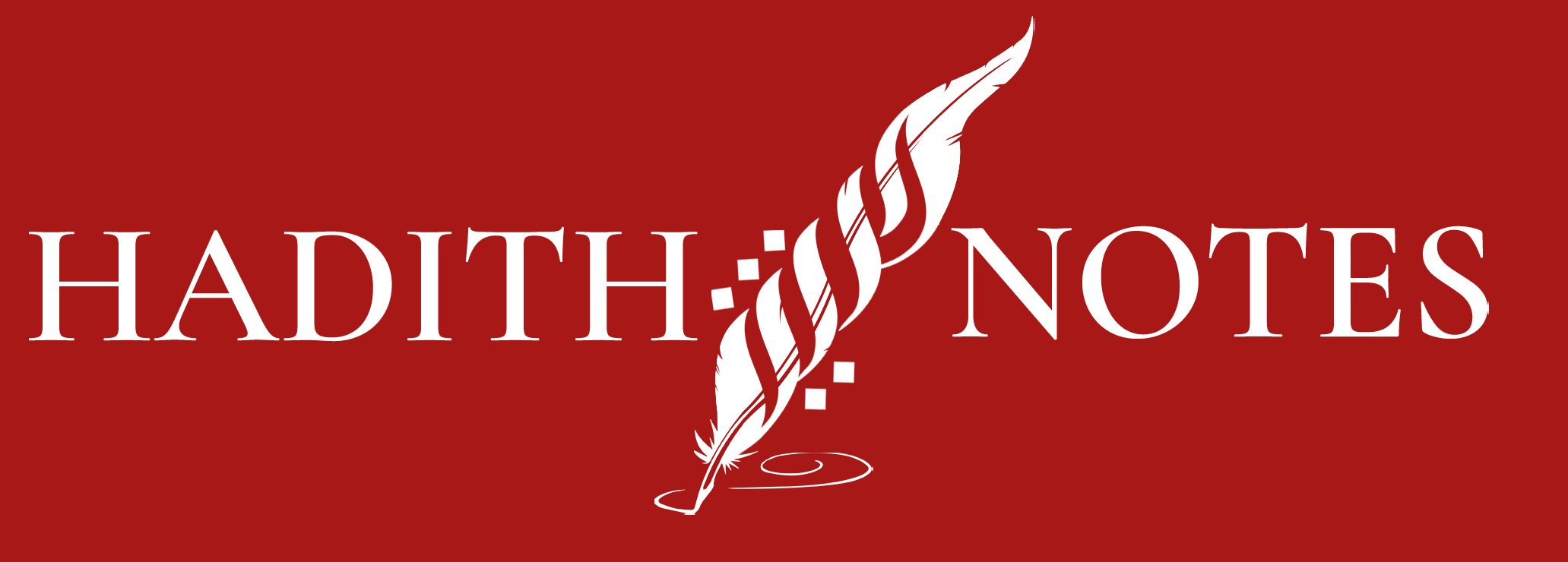The Life and Works of Hāfiẓ al-Zayla‘ī, Author of Nasb al-Rāyah By Shaykh Muhammad ‘Awwāmah Translated by Muntasir Zaman Name and lineage He is the Imām, prolific Hadith memorizer, and authority, Jamāl al-Dīn Abū Muhammad ‘Abd Allāh ibn Yūsuf ibn Yūnus Ibn Muhammad al-Zayla‘ī[1] al-Hanafī, one of the leading Hadīth experts of the 8th century, which brimmed with experts of Hadīth who revived the path of the earlier scholars vis-à-vis memorization, scope, and analytics. Biographers disagree on his name and his father’s name: is it ‘Abd Allāh ibn Yūsuf or Yūsuf ibn ‘Abd Allāh? The first opinion is more preferred, and Allāh knows best.[2] Birth Biographers have not specified the year of his birth, and neither have I come across any information to specify it either, but it is, nonetheless...
The Life and Works of Hāfiẓ al-Zayla‘ī, Author of Nasb al-Rāyah
Distinctive Traits of the Islamic System of Inheritance
Distinctive Traits of the Islamic System of Inheritance By Mufti Taqi Uthmani Translated by Muntasir Zaman Islamic law has put in place a fair and wise system of inheritance. The Qur’an and Sunnah have meticulously elucidated the subject without leaving it to human reasoning, which is unable to fully grasp the profound wisdom only encompassed by Allah Most High. We, therefore, find that the Islamic laws of inheritance part ways with other religions and legal systems from many angles. These distinctive traits are encapsulated in the following principles laid down by the Shari’ah. 1. All assets of the deceased form part of the inheritance The first principle in the Islamic system of inheritance is that all assets left by the deceased are inheritable be they of personal use, such as clothes...
Book Review: Abū Bakr al-Bayhaqī’s al-Madkhal ilā ‘Ilm al-Sunan
Book Review: Abū Bakr al-Bayhaqī’s al-Madkhal ilā ‘Ilm al-Sunan By Muntasir Zaman [Al-Madkhal ilā ‘Ilm al-Sunan, by Abū Bakr al-Bayhaqī, 2016, 1st ed. Muhammad ‘Awwāmah, pp.969 + 94, vol.2, $35 (hardback), ISBN 978-9933-503-59-8] Covering nearly one-hundred topics, it is no wonder the disciplines of Hadīth are one of the few sciences that are ‘ripe’ (nadaj) and ‘roasted’ (ihtaraq), that is, they were clearly elucidated and thoroughly researched (al-Jazā’irī, Tawjīh al-Nażar, vol.2, p.903). Obviously, this accomplishment was not the doing of a few scattered scholars; it was the result of relentless effort from an unbroken chain of scholars over a millennium. In his authoritative commentary, Nuzhat al-Nażar, Hāfiż Ibn Hajar al-‘Asqalānī (d. 852 AH) briefly outlines the most prominent...
The Life and Thought of Imām Zāhid al-Kawtharī
The Life and Thought of Imām Zāhid al-Kawtharī By Muntasir Zaman “What cosmic soul is imprisoned in that human body?” mused the learned Abū Zahrah (d. 1974) in utter admiration—indeed, “it is the soul of al-Kawtharī!” he proclaimed. [1] In recent memory, relatively few scholars have managed to synthesize expertise in, not merely acquaintance with, the vast majority of Islamic sciences. Shaykh Muhammad Zāhid al-Kawtharī (or Mehmet Zahit Kevsari) is arguably the foremost contender for that accolade; his polymathic oeuvre leaves one hard-pressed to pinpoint his forte, [2] from the intricacies of philosophy[3] to the minutiae of Arabic grammar,[4] not to mention his undisputed command of theology,[5] Hadīth,[6] and Islamic law.[7] The ripple effect of his peerless intellectual contributions...
Book Review: The Reports of Abū Mikhnaf in al-Tabarī’s History: The Era of the Rightly Guided Caliphs

Book Review: The Reports of Abū Mikhnaf in al-Tabarī’s History: The Era of the Rightly Guided Caliphs, a Critical Appraisal Reviewed by Muntasir Zaman [Marwiyyāt Abī Mikhnaf fī Tārīkh al-Tabarī: ‘Asr al-Khilāfah: al-Dirāsah Naqdiyyah, by Yahyā ibn Ibrāhīm al-Yahyā, Riyadh: Dār al-‘Asimah, 2011, 528 pp., $9.50 (hardback), ISBN 978-603-8057-11-7] Introduction The rapid expansion of Islam’s borders from a fledgling state to a massive empire is arguably one of the greatest military feats. By 30 AH/650 CE, the entire Arabian Peninsula and the area spanning from Egypt on the west to the Iranian plateau on the east were all under Muslim rule.[1] The annals of Islamic history are replete with extraordinary accomplishments by Muslims throughout this vast landscape. In the same breath, however, one...
The Science of al-Jarh wa al-Ta‘dīl: Separating Wheat from Chaff
The Science of al-Jarh wa al-Ta‘dīl: Separating Wheat from Chaff By Muntasir Zaman “And true virtue is what critics cannot help but acknowledge” goes the popular adage.[1] A case in point is where the renowned Orientalist Aloys Sprenger (d. 1893 CE) humbles his pen to write, “There is no nation, nor has there been any which like them [Muslims] has during twelve centuries recorded the life of every man of letters.”[2] The exclusivity of Muslims vis-à-vis the isnād system, as explained earlier, lies in their detailed evaluations of the transmitters who form the chains of transmission, better known as al-Jarh wa al-Ta‘dīl (lit. criticism and accreditation). In this article, we will briefly outline the origins and development, basic nomenclature, procedures, and relevant literature in the...
The Isnād System: An Unbroken Link to The Prophet
Pause for a moment, and ask yourself: what are the greatest accomplishments of the Muslim civilization? At first thought, a number of things will probably come to mind, ranging from mathematics to medicine to architecture—perhaps even coffee.[1] But unfortunately we tend to overlook one of the greatest accomplishments, if not the greatest: the isnād system. That a person, till this day, can attribute a hadīth to the Prophet and then follow it with a list of authorities reaching back successively to the source is what scholars as early as Abū Bakr al-Thaqafī (d. 309 AH)[2] described as an exclusive accomplishment of the Muslim civilization.[3] The word sanad (lit. base)[4] refers to the chain of transmitters leading to the text of a hadīth while isnād refers to the mentioning of the chain...
Sixty Years in The Making: A Closer Look at Shaykh ‘Awwāmah’s Edition of Tadrīb al-Rāwī fī Sharh Taqrīb al-Nawāwī
Sixty Years in The Making: A Closer Look at Shaykh ‘Awwāmah’s Edition of Tadrīb al-Rāwī fī Sharh Taqrīb al-Nawāwī By Muntasir Zaman When an expert assures you that he invested sixty years of experience in a given project, it should come as no surprise that such a work deserves undivided attention. That is the case with the latest edition of Imām Jalāl al-Dīn al-Suyūtī’s (d. 911 AH) magnum opus Tadrīb al-Rāwī fī Sharh Taqrīb al-Nawāwī, which was critically edited by the Syrian Hadīth scholar Shaykh Muhammad ‘Awwāmah. Shaykh ‘Awwāmah prefaces the work by saying, “I have written therein the crux of sixty years of dedication to this field.”[1] In this article, we will take a closer look at this new edition by going through a general overview of the work and by highlighting three salient...
A Student’s Guide to Essential Works on Qur’ānic Exegesis
A Student’s Guide to Essential Works on Qur’ānic Exegesis By Mawlānā Yūsuf al-Bannūrī Translator’s Preface Before you is an excerpt from “Yatīmat al-Bayān,” a forward by the critical hadith scholar Mawlānā Yūsuf al-Bannūrī (d. 1397 AH) to “Mushkilāt al-Qur’ān” which is a compilation of exegetical notes by ‘Allāmah Anwar Shāh al-Kashmīrī (d. 1352 AH). In this excerpt, Mawlānā Yūsuf al-Bannūrī begins by pointing out beneficial resources for commentary of Qur’ānic verses in works not written exclusively on the subject of Tafsīr but are nonetheless written by brilliant scholars whose works are generally filled with beneficial commentary. He then draws the attention of the reader to four primary books of Tafsīr which in his opinion “would quench the thirst of anyone who drinks from their...
Insights on the Usage of Computer Programs to Locate and Grade Hadīth
Insights on the Usage of Computer Programs to Locate and Grade Hadīth By Muftī ‘Abd al-Mālik al-Kumillā’ī [Translator’s Preface: The following is an excerpt from Muftī ‘Abd al-Mālik’s book “al-Madkhal ilā ‘Ulūm al-Hadīth al-Sharīf”[1] on the use of computer programs to locate and grade hadīths. In this excerpt, Muftī ‘Abd al-Malik, seeing the abuse of these programs, sets out to clarify several misconceptions regarding them. Although the author’s contention lies mainly in the usage of computer programs to locate and grade Hadith, his insights are equally applicable to internet searches, printed books, and computer searches in other sciences as well. No doubt computer programs have immense benefit and can open many avenues when searching for hadīth, but everything needs to be put...

